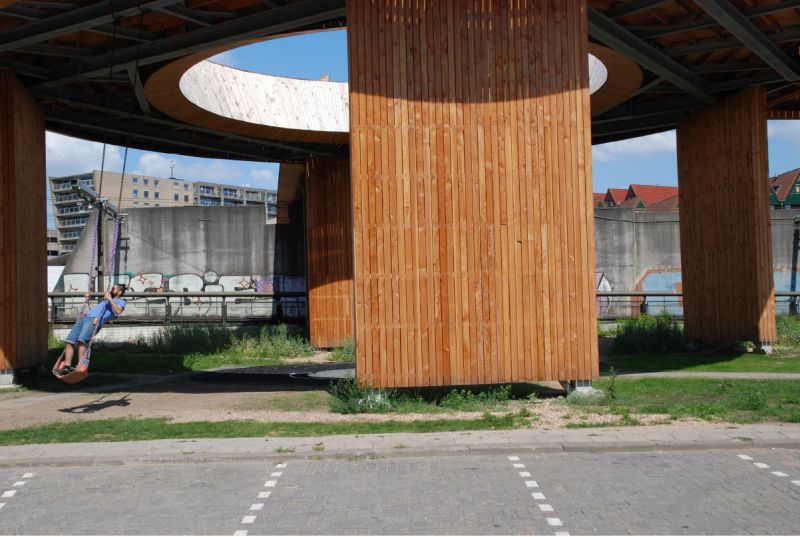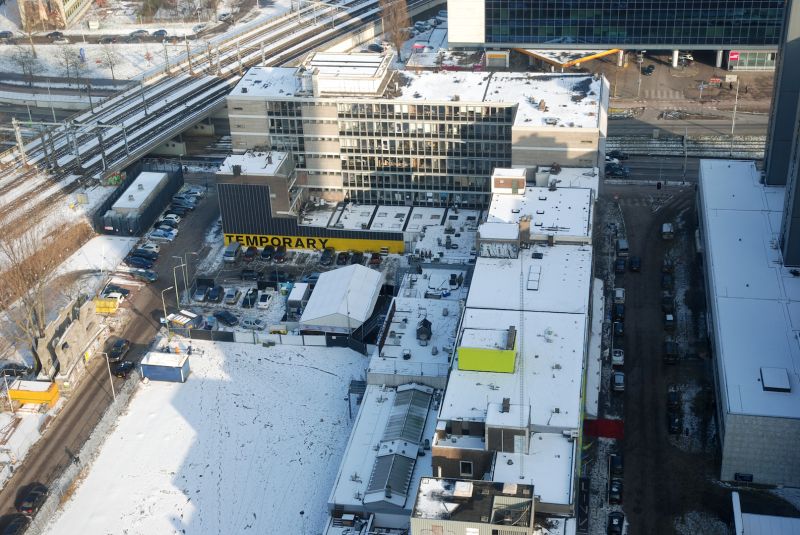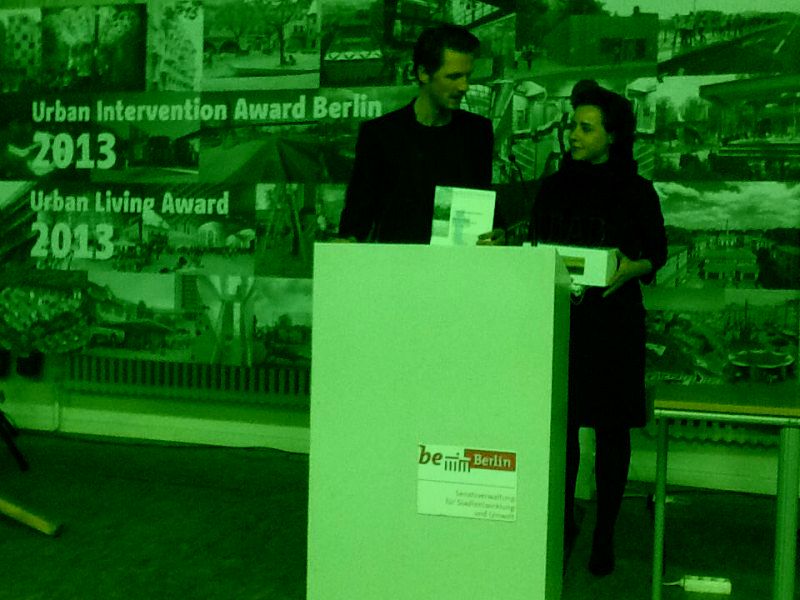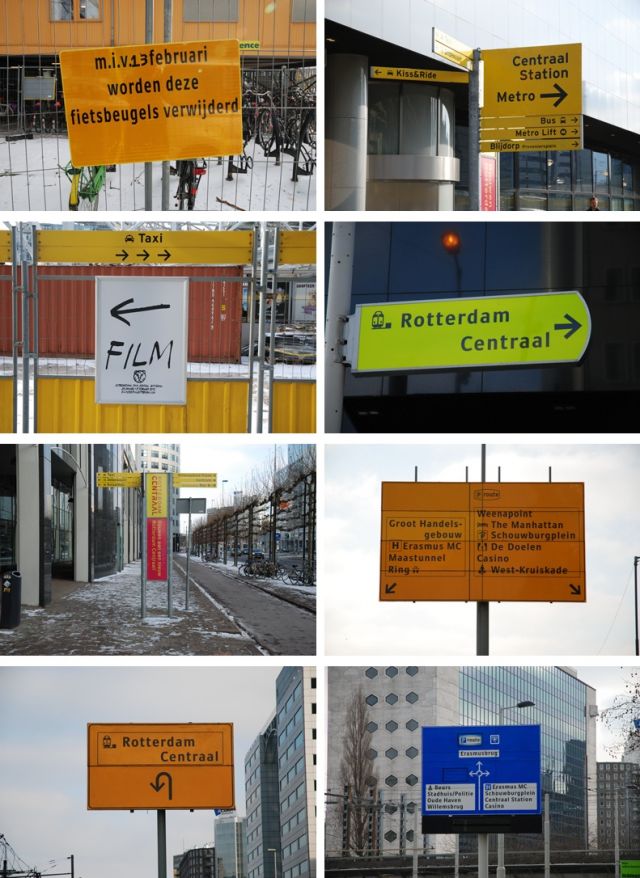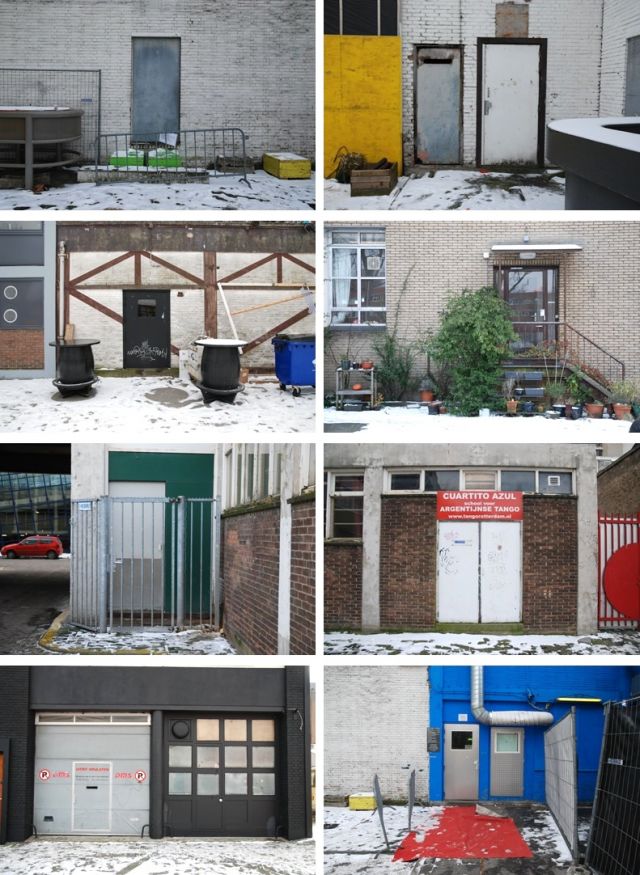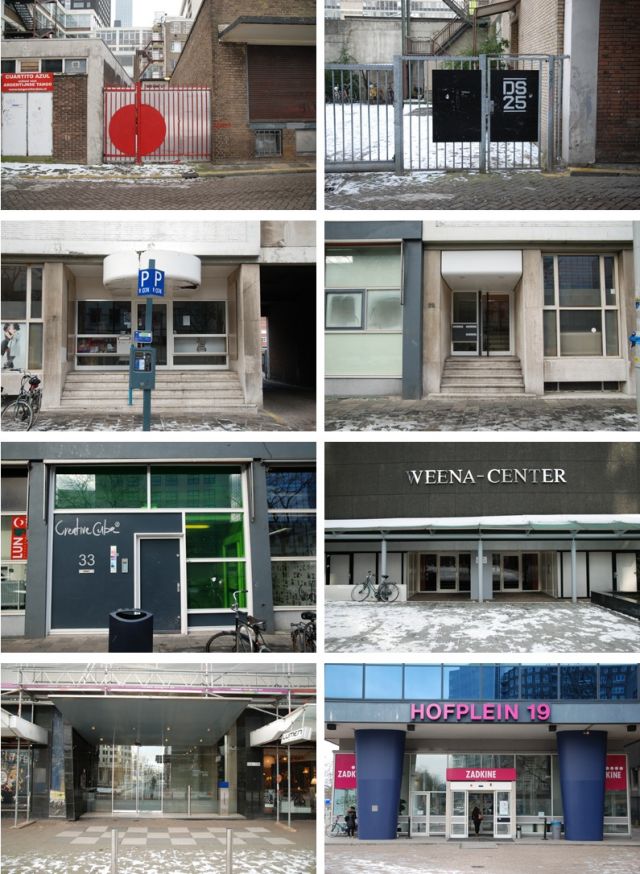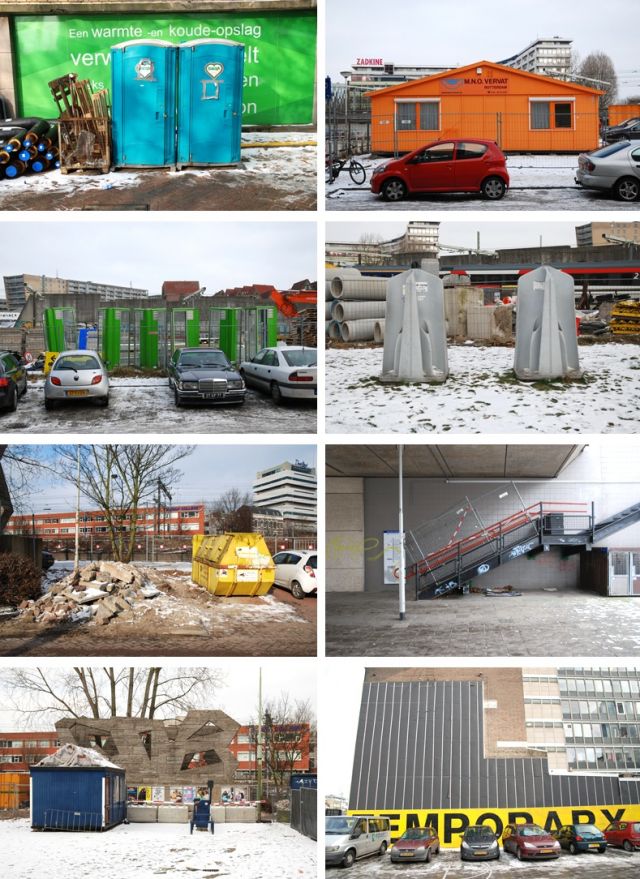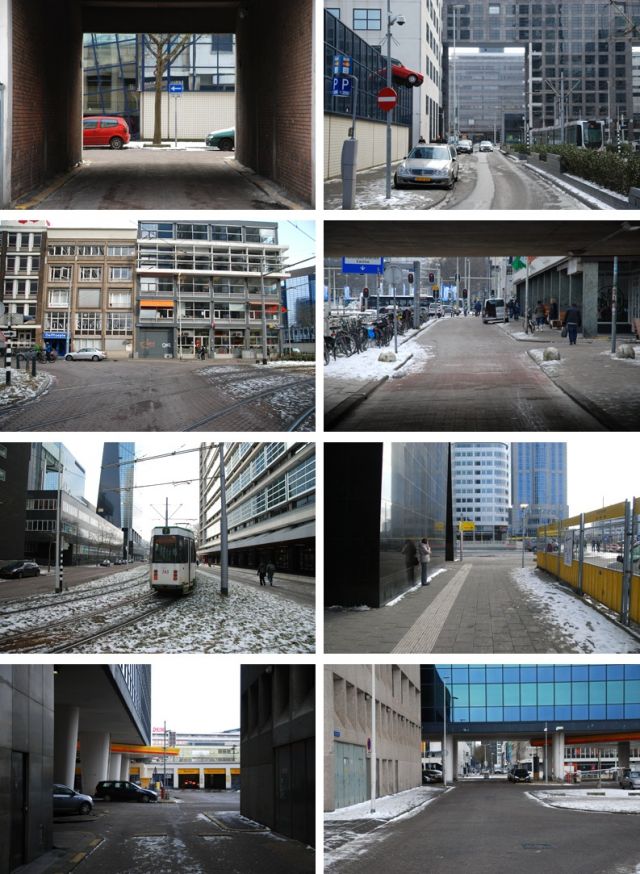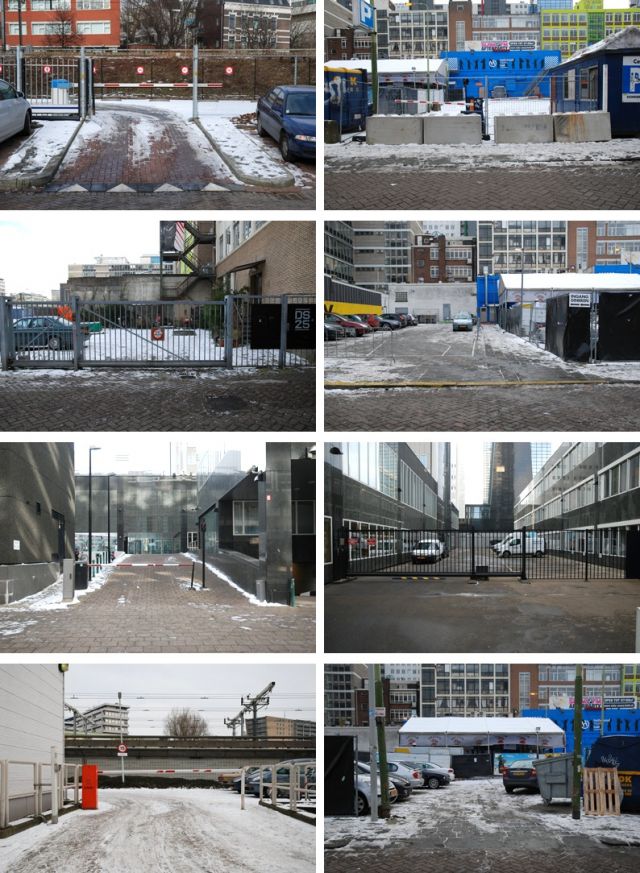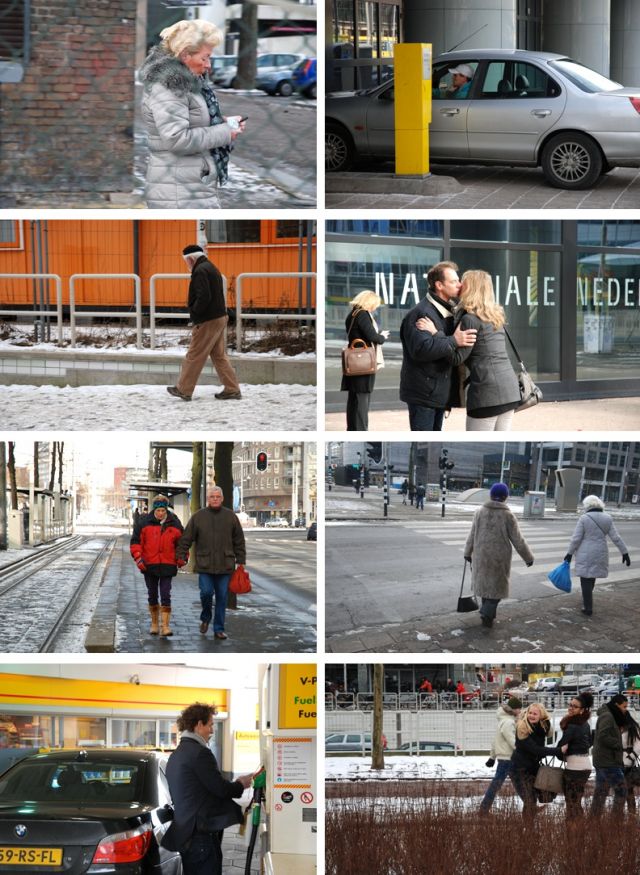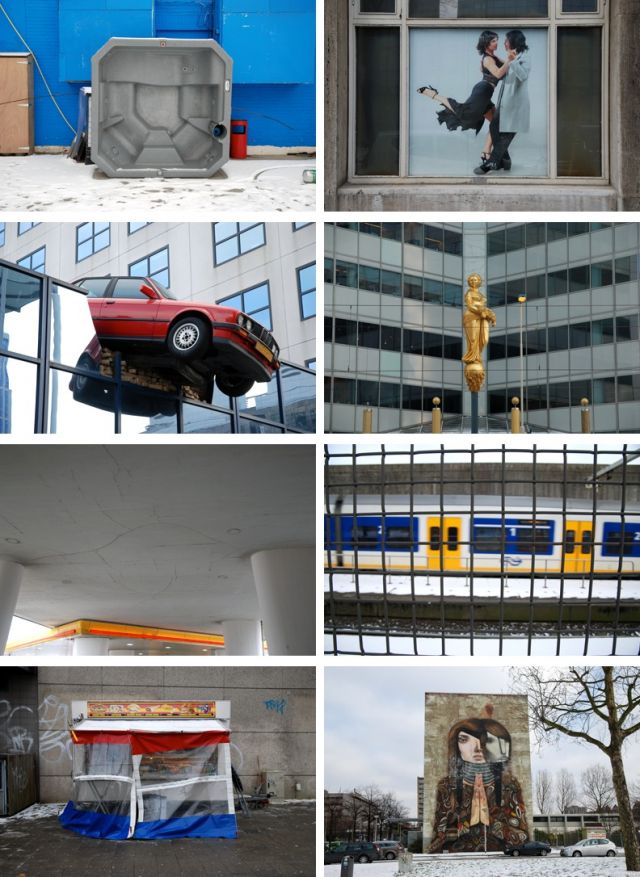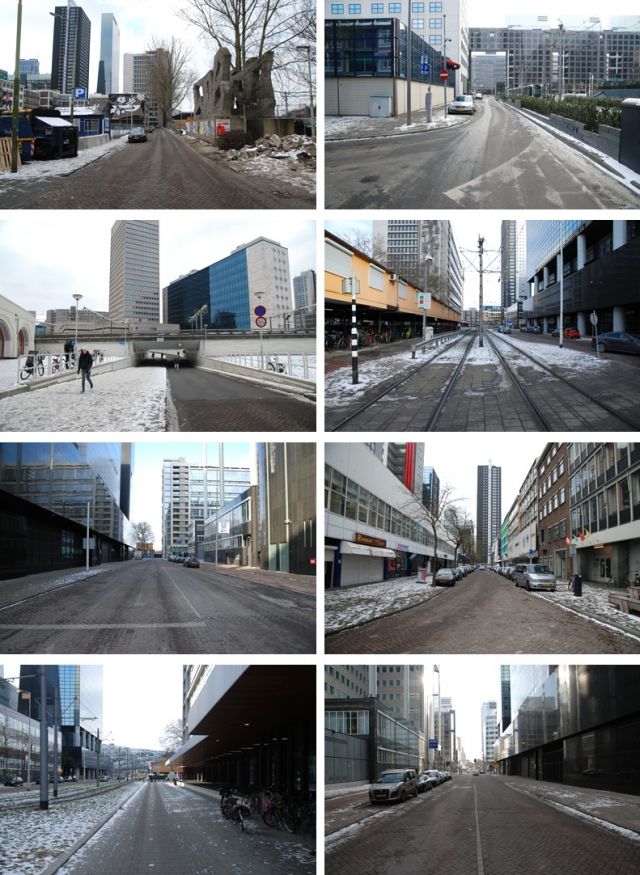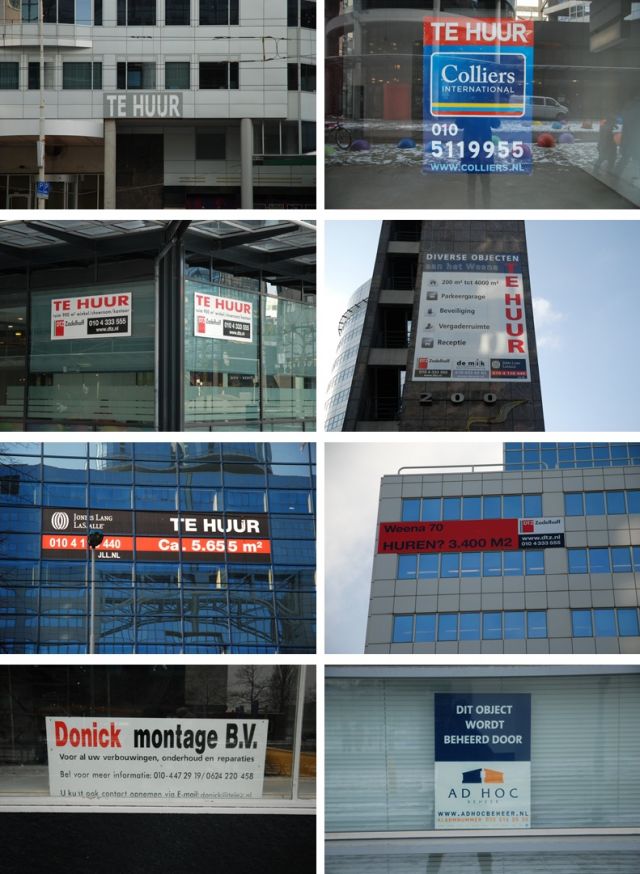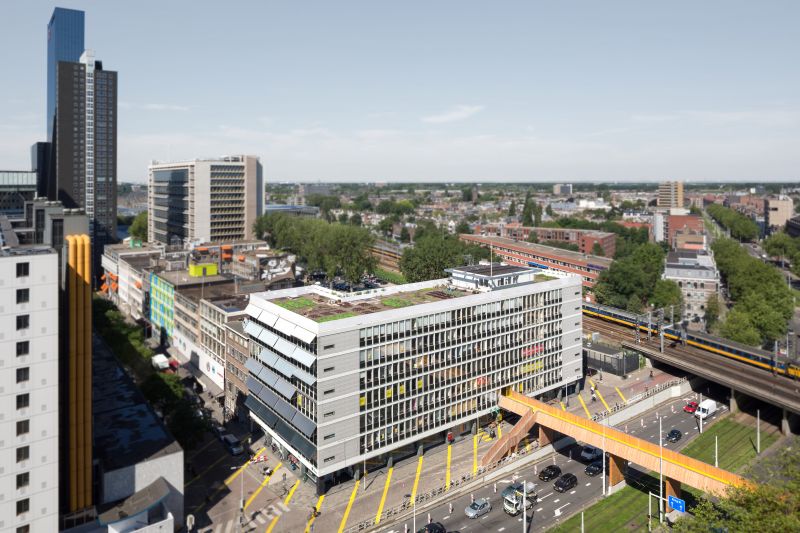
picture: Ossip van Duivenbode
Test Site Rotterdam is a project by the IABR and the architecture office ZUS addressing the Rotterdam Central District. Both the IABR and ZUS reside in the area and they feel that vitality must be restored to this urban district.
vacant buildings
Just as in many other Dutch cities, countless square meters of office space lie empty in Rotterdam. But here, most of these empty buildings are right in the city centre. In the Rotterdam Central District, the relatively small area between Central Station, Weena and Pompenburg, there is around 100.000 m2 of unused space. This is the equivalent of the surface area of around 1200 homes.
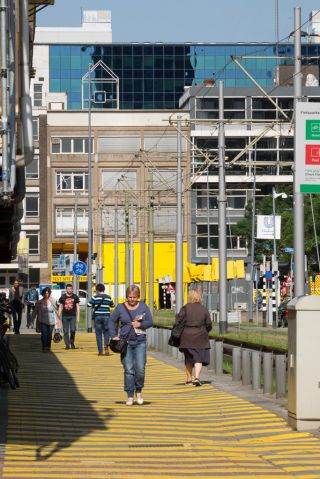
ZUS, the IABR, and a growing group of other stakeholders in the area, have decided to take up the challenge and to develop and promote ways to transform the central district in such a way that it becomes a lively part of the city again.
Given today’s market economy, it’s safe to say things will not get better by using the same methods as before, on the contrary. What has helped cause the financial crisis cannot solve it. Experiments therefore with strategies that want to revitalize the heart of the city by using alternative forms of funding and planning, and by employing newly developed design approaches have been run at Test Site Rotterdam. The test projects include the DakAkker (a vegetable roof garden), Park Pompenburg, the Biergarten and the Luchtsingel, a crowdfunded elevated walkway that will eventually connect the Central Station to Hofbogen, running right through the heart of the Central District.
After winning a city wide referendum, the Rotterdam City Initiative, with a wide margin, the Luchtsingel really got off the ground. Construction was started in March 2012, and the Luchtsingel is planned to be ready by the spring of 2014.
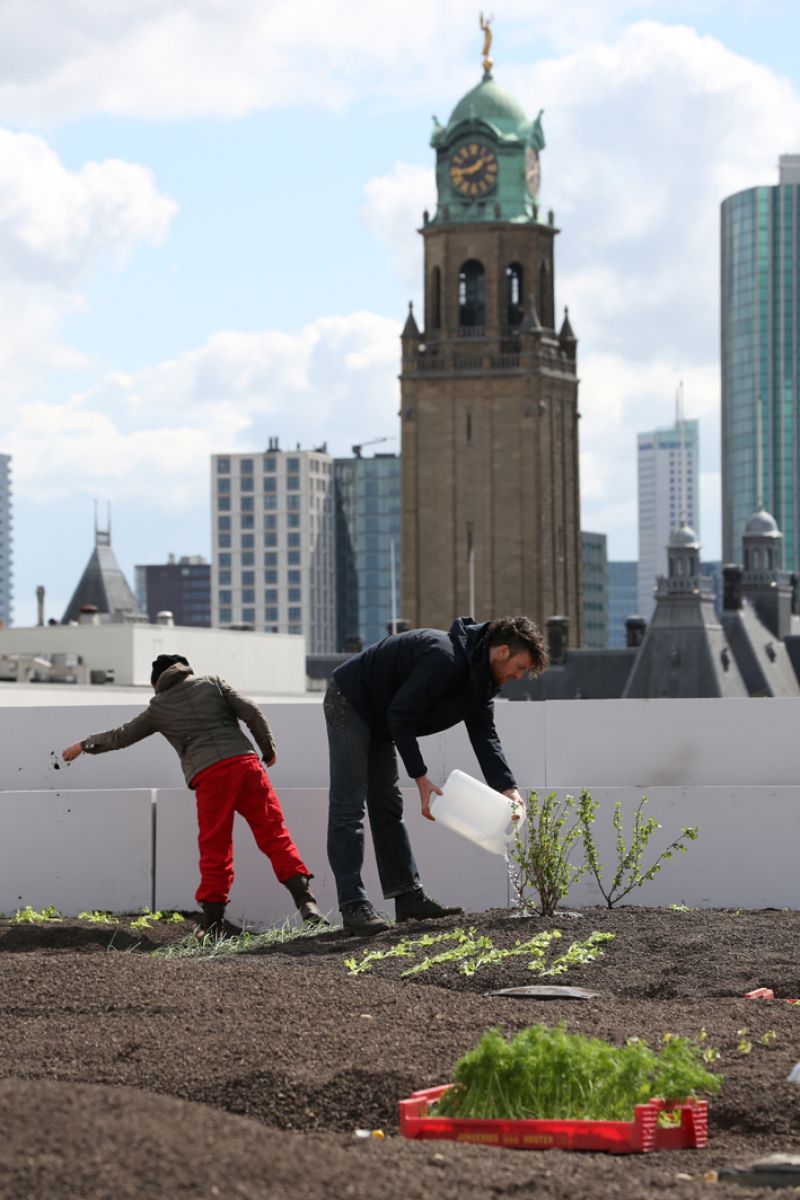
picture: Ossip van Duivenbode
Credits
Local curator: ZUS – Elma van Boxel and Kristian Koreman (members Curator Team 5th IABR: Making City)
Partners were stakeholders in the area, a.o. Rotterdam Central District Association, LSI project investment, Rotterdam City Department of Urban Development, Rotterdam Climate Initiative, Hofbogen Project Office and Rotterdams Milieucentrum, and cultural institutions such as Motel Mozaïque and Rotterdam Festivals. Delft University of Technology, the Erasmus University Rotterdam, the Willem de Kooning Academy and the University of Michigan), and the design office N H D M actively participated in the research and development of plans.
Test Site Rotterdam was co-funded by the Dutch Architecture Fund and the DOEN Foundation.
